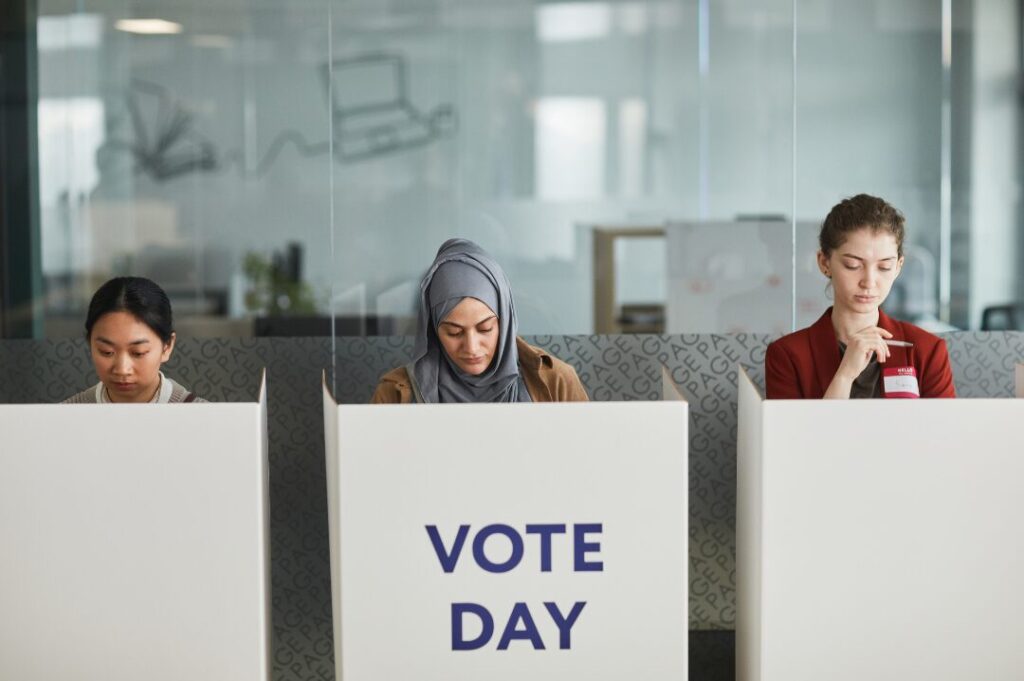Civic participation is a fundamental aspect of any thriving democracy. It is the active involvement of citizens in the decision-making processes of their communities and nations. When individuals participate in civic activities, they contribute to the shaping of public policies, the election of representatives, and the overall functioning of democratic institutions. Without civic participation, democracy becomes hollow and unresponsive to the needs and aspirations of its citizens.
Understanding the Basics of Democracy: What is Civic Participation?
Civic participation refers to the engagement of individuals in activities that promote the common good and contribute to the functioning of democratic societies. It encompasses a wide range of actions, from voting in elections to volunteering for community organizations, attending public meetings, and advocating for policy changes. Civic participation is not limited to formal political processes but extends to everyday life, where individuals have the power to make a difference through their actions and choices.
Why Every Vote Counts: The Power of Individual Voices in Democracy
One of the most crucial aspects of civic participation is voting. Every vote counts because it represents an individual’s voice and choice in shaping the future of their community or nation. While it may seem that one vote cannot make a significant difference, history has shown otherwise. There have been numerous instances where elections were won by a small margin, highlighting the power of individual voices.
For example, in the 2000 United States presidential election, George W. Bush won Florida by just 537 votes, securing his victory over Al Gore. Similarly, in the 2017 Virginia House of Delegates election, Democrat Shelly Simonds won by a single vote after a recount, resulting in a 50-50 split between Democrats and Republicans in the state legislature. These examples demonstrate that every vote matters and can have a profound impact on the outcome of an election.
The Importance of Voter Education: Making Informed Decisions at the Polls
In order for civic participation to be meaningful, it is essential for individuals to be informed before casting their votes. Voter education plays a crucial role in ensuring that citizens make informed decisions at the polls. It involves providing accurate and accessible information about candidates, their positions on key issues, and the implications of various policy choices.
When voters are well-informed, they can make choices that align with their values and interests, and hold elected officials accountable for their actions. On the other hand, when voters lack education about the candidates and issues at stake, they may make uninformed decisions that do not reflect their true preferences or the needs of their communities.
Overcoming Barriers to Voting: Ensuring Equal Access for All Citizens
Equal access to the voting process is a fundamental principle of democracy. However, there are often barriers that prevent certain groups of citizens from exercising their right to vote. These barriers can take various forms, such as voter suppression tactics, lack of accessibility for individuals with disabilities, or inadequate resources for voter registration and education.
Efforts to overcome these barriers are essential to ensure that all citizens have an equal opportunity to participate in the democratic process. For example, organizations like the American Civil Liberties Union (ACLU) and the League of Women Voters have been actively working to protect voting rights and expand access to the ballot box. Additionally, legislation such as the Voting Rights Act in the United States has been instrumental in combating voter suppression and ensuring equal access to voting.
The Role of Political Parties in Encouraging Civic Participation
Political parties play a crucial role in encouraging civic participation by mobilizing voters and engaging them in the political process. They serve as a platform for individuals to express their political preferences and work collectively towards common goals. Political parties organize campaigns, rallies, and events that aim to increase voter turnout and raise awareness about important issues.
For example, during election seasons, political parties often conduct door-to-door canvassing, phone banking, and voter registration drives to encourage citizens to participate in the electoral process. They also play a vital role in candidate recruitment and training, helping individuals who are interested in running for office to navigate the complexities of campaigning and governance.
From Protest to Politics: How Civic Engagement Shapes Public Policy

Civic engagement goes beyond voting and political party involvement. It also includes activities such as protests, demonstrations, and grassroots movements that aim to bring about social and political change. These forms of civic participation have historically played a significant role in shaping public policy.
Protests and movements have the power to raise awareness about important issues, mobilize public opinion, and put pressure on policymakers to take action. For example, the civil rights movement in the United States led to the passage of landmark legislation such as the Civil Rights Act of 1964 and the Voting Rights Act of 1965, which ended racial segregation and protected voting rights for African Americans.
The Impact of Social Media on Voter Turnout and Political Engagement

In recent years, social media has emerged as a powerful tool for civic participation. Platforms like Facebook, Twitter, and Instagram have revolutionized the way people engage with politics and participate in democracy. Social media allows individuals to share information, express their opinions, and mobilize others around important causes.
During elections, social media can play a significant role in increasing voter turnout by providing information about candidates, polling locations, and key issues. It also allows for real-time communication between candidates and voters, enabling a more direct and interactive form of engagement. However, social media also presents challenges such as the spread of misinformation and the creation of echo chambers that reinforce existing beliefs.
The Future of Democracy: How Technology is Changing Civic Participation
Technology is rapidly changing the way people participate in democracy. From online voting systems to mobile apps that facilitate citizen engagement, technology has the potential to make civic participation more accessible, efficient, and inclusive.
For example, countries like Estonia have implemented online voting systems that allow citizens to cast their votes from the comfort of their homes. This has increased voter turnout and made the voting process more convenient for individuals with mobility or accessibility challenges. Similarly, mobile apps and platforms like Change.org have made it easier for individuals to start and sign petitions, raising awareness about important issues and mobilizing support for change.
The Global Perspective: Comparing Civic Participation Across Nations
Civic participation varies across nations, with some countries having higher levels of engagement than others. Factors such as political culture, institutional design, and socioeconomic conditions can influence the extent to which citizens participate in the democratic process.
For example, countries like Sweden and Denmark consistently rank high in measures of civic participation, with high voter turnout rates and active engagement in community organizations. These countries have strong social welfare systems and a culture that values collective decision-making and consensus-building.
On the other hand, countries like Russia and China have lower levels of civic participation due to restrictions on political freedoms and limited opportunities for citizen engagement. In these countries, individuals may face significant barriers to participating in the democratic process, such as censorship, repression, or lack of access to information.
Empowering the Next Generation: Encouraging Youth Civic Engagement and Leadership
Youth civic engagement is crucial for the future of democracy. Young people bring fresh perspectives, energy, and innovative ideas to the table. However, they often face barriers to participation such as lack of political education, limited resources, and a sense of disillusionment with traditional political institutions.
To encourage youth civic engagement, various programs and initiatives have been developed around the world. For example, organizations like AIESEC and Youth for Understanding International Exchange provide opportunities for young people to engage in cross-cultural learning and leadership development. Additionally, schools and universities can play a vital role in promoting civic education and providing platforms for young people to voice their opinions and take action on issues that matter to them.
Civic participation is the lifeblood of democracy. It empowers individuals to have a say in the decisions that affect their lives and ensures that governments are accountable to their citizens. From voting in elections to engaging in protests and grassroots movements, there are numerous ways for individuals to participate in democracy and make a difference.
As citizens, it is our responsibility to get involved in our communities, educate ourselves about the issues at stake, and actively participate in the democratic process. By doing so, we can contribute to the creation of a more just, inclusive, and responsive society. So let us all take action, get involved, and make our voices heard. Our democracy depends on it.
In a world where every vote counts, it is crucial to understand the significance of participating in elections. Voting not only allows us to exercise our democratic rights but also shapes the future of our society. In an insightful article by BestCandidate.net, they delve into the reasons why voting is important and how it can make a difference. They highlight the power of our voices and emphasize the role of informed decision-making in choosing the best candidate for the job. To further explore this topic, check out their article here. Additionally, BestCandidate.net offers valuable resources such as a login portal for registered users to stay engaged and informed, as well as a platform for signing petitions to support causes that matter to you. Visit their website at https://bestcandidate.net/login/ and https://bestcandidate.net/petitions/ to learn more about their initiatives and take an active role in shaping our collective future.






